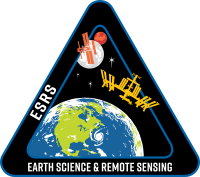Frozen Moonrise
An astronaut took this photograph of a full Moon rising over a frigid Hudson Bay in northern Canada. Looking north from the International Space Station, Earth’s horizon gradually fades into the darkness of polar night.
The winter scene reveals icy shorelines and frozen landscapes under thin, wrinkled clouds. The small villages and towns along these shores in Manitoba Province receive just 6 to 7 hours of sunlight each day in December. A bit farther north, the Sun will not rise above the horizon again until January. This photo, taken around 1 p.m. local time, shows just how little sunlight reaches northern Canada during a winter day.
In October 2019, ice began to form as it usually does on northern Hudson Bay. As seasonal temperatures dropped and the hours of sunlight decreased, fast ice attached to the western shores of Hudson Bay and began spreading further south. Once frozen, Hudson Bay becomes a key habitat for migrating polar bears, which spend much of their time on the ice until it starts to melt again around June.
Astronaut photograph ISS061-E-77729 was acquired on December 12, 2019, with a Nikon D5 digital camera using a 50 millimeter lens and is provided by the ISS Crew Earth Observations Facility and the Earth Science and Remote Sensing Unit, Johnson Space Center. The image was taken by a member of the Expedition 61 crew. The image has been cropped and enhanced to improve contrast, and lens artifacts have been removed. The International Space Station Program supports the laboratory as part of the ISS National Lab to help astronauts take pictures of Earth that will be of the greatest value to scientists and the public, and to make those images freely available on the Internet. Additional images taken by astronauts and cosmonauts can be viewed at the NASA/JSC Gateway to Astronaut Photography of Earth. Caption by Andrea Meado, Jacobs Technology, JETS Contract at NASA-JSC.

